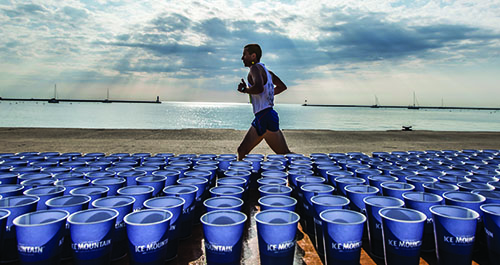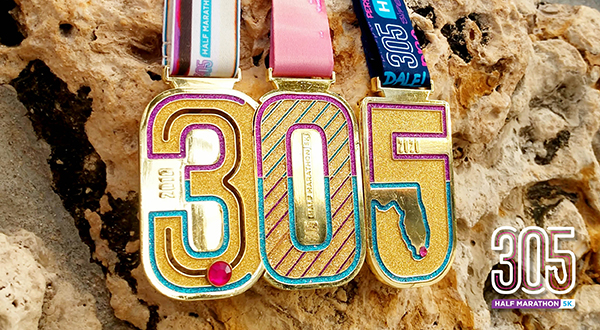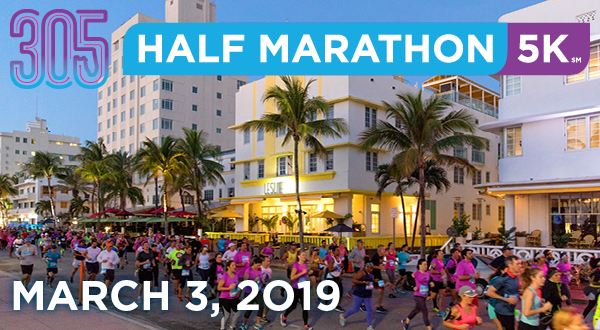5 Tips For A Successful 13.1

There is a definite learning curve in the half marathon. Tips and tricks are passed on from coach to runner,
from veterans to first-timers. A successful race is the result of managing many small tasks. By
planning ahead, you can make your 13.1 experience a whole lot smoother.
Practice
Practice everything! In your long runs leading up to the half marathon, you should try the shoes, apparel,
breakfast, drink and/or gel that you think you will use on race day. It’s better to discover if something
doesn’t work on a long run than during the marathon. Check the race website in advance to find out
what fluids will be available on course. You can choose whether to supplement with the fuel on course
or carry a different product of your choice.
Goals
Experienced runners should have a goal time, but have some flexibility in that goal for dealing with
weather and other factors on race-day. I like having a primary goal and a stretch goal, but it’s also
good to have a slower time in mind that may you’ll be OK with if weather forces a slower pace. Just
finishing a 13.1 is a huge accomplishment, even if you have to adjust your goal time.
I encourage new runners to focus on finishing their first half marathon, rather than on hitting a specific
time. There should be lots of entertainment to enjoy along the course, and running a solid, fun first
half marathon will set you up well for a more specific goal at your next race! Soak up the energy of the
race, but start conservatively so you can have fun during the second half. The last 3 miles feel as hard
as the first 10, so you should plan to save plenty of energy for the final miles.
Pacing
Many runners get caught up in the excitement of the half marathon and start out too fast. The early miles
always feel easy, but any time “banked” is often given back later. It’s always easier to make up time if
you start a little slow than to recover from starting too fast.
Don’t get caught up in someone else’s pace. Even among runners with the same goal time, you may
find that one runner is stronger running uphill, while another is stronger on downhill or flat segments.
This can cause an awkward feeling of surges throughout the race, which is more difficult than
maintaining the pace that is right for YOU.
If you want to run with a pace group, allow yourself the option of pulling slightly ahead or even
dropping a little behind during segments where the pace doesn’t feel quite right. Remember that
pacers run a steady pace for 13.1, which might not mean a steady effort over hills.
Layers
If you’re expecting cool weather at the start, add some layers that you can pull off mid-race if you warm up or if the fabric rubs you wrong. You can cut the toes off of some tube socks to make arm-warmers, and if needed, wear some “throw-away” gloves and a hat that you can toss as you warm up.
Hydration
Drinking too much plain water before and during the race can be a serious problem. It can throw off
your electrolyte balance, causing a risk of hyponatremia (low sodium concentration). Runners are at a
greater risk of hyponatremia if they take water at all aid stations and don’t consume adequate
electrolytes to maintain sodium balance.
To prevent hyponatremia, you should consume electrolytes with some of your water in the days before
the half marathon and during the race. You can mix in an electrolyte drink or eat whole foods containing
electrolytes. Leading up to race-day, good electrolyte sources include bananas & avocado for
potassium, dairy products (if you tolerate them) and green leafy vegetables for calcium, and chicken
broth or other salty foods for sodium. On race morning you’ll want to stick with lighter foods for
breakfast, mixing carbs & protein. My favorite pre-race meal is a banana with mixed nuts. Eaten 2-3
hours before the race, it provides sodium and potassium, along with carbs, and some protein & healthy
fat.
A half marathon is a lot to manage. Make a plan, but allow some flexibility if things don’t go exactly right. We look forward to seeing you at the finish line!
Submitted by Rebekah Mayer, National Run Training Manager at Life Time Fitness. For more information on Life Time Run training programs, go to www.lifetimerun.com.


